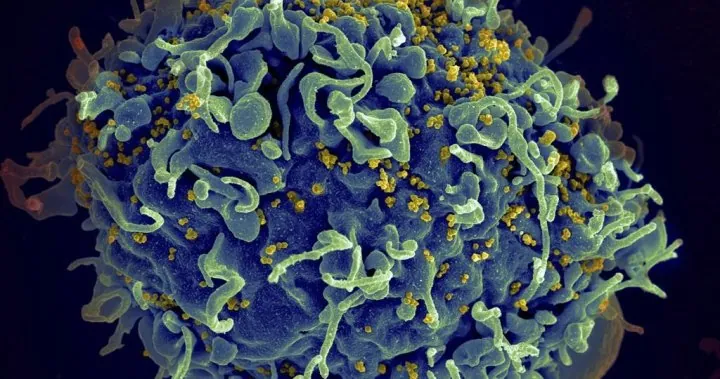
Shocking Rise in Food Insecurity Among Algoma Households: New Health Profile Reveals Startling Statistics
2024-09-26
Overview of Food Insecurity in Algoma
In a recent meeting held by the Algoma Public Health (APH) board, shocking statistics unveiled the growing crisis of food insecurity affecting local households. The latest Community Health Profile, first shared at an event on September 18, highlights that a staggering 19.4% of households in Algoma are facing food insecurity, significantly above Ontario's provincial average of 17.3%. This alarming figure sheds light on the inadequate access many residents have to sufficient and healthy food due to financial constraints.
Call for Urgent Reforms
Experts emphasize the need for urgent reforms, calling for social assistance rates that realistically reflect the escalating cost of living, the implementation of a universal basic income, and the establishment of a dedicated poverty reduction committee. Additionally, they advocate for a living wage for workers, which could particularly help families struggling to make ends meet.
Rising Costs of Feeding Families
The report also indicates that the average monthly cost of feeding a family of four in Algoma reached $1,180.92 this year, demonstrating a notable 6.86% increase from 2022. This continuous rise puts added pressure on low-income families already grappling with the burden of food scarcity.
Health Statistics and Cancer Rates
The Community Health Profile paints an even grimmer picture, revealing that Algoma has the highest rate of new cancer diagnoses in Ontario. Between 2016 and 2020, there were 5,210 new cancer cases reported, leading to 2,075 cancer-related deaths, marking the third highest rate in the province. Concerningly, nearly 46% of these deaths were linked to smoking, while 13.1% were associated with alcohol use. In an effort to combat these alarming statistics, APH is actively promoting smoking cessation and urging the reduction of alcohol consumption, advocating for federal intervention to impose warning labels on alcoholic beverages.
Screening Rates for Cancer
Another critical issue underlined in the Profile is the inadequate cancer screening rates in the district. Breast cancer screening stands at only 57.3%, cervical cancer at 49.3%, and colorectal cancer at 62%.
Mental Health Crisis in Algoma
Mental health concerns are equally pressing, as Algoma registered the highest rate of mental health-related emergency department visits in Ontario, with 28.5 visits per 100,000 people compared to the provincial average of 19. Furthermore, families seeking child and youth mental health services are facing painfully long wait times—370 days for counseling and 632 days for intensive treatment. Barriers to access, including service costs, long waits, geographical distance, limited providers, stigma, and a convoluted support system, are preventing many from getting the help they desperately need.
Data Collection and Impact of COVID-19
The data for this Community Health Profile was meticulously gathered from over 60 distinct sources, marking the first comprehensive review since 2018. Unfortunately, delays caused by the COVID-19 pandemic pushed back the timeline for its release.
Positive Developments
In his report to the board, Dr. John Tuinema, APH's acting medical officer of health, shared a glimmer of hope amidst the challenges. He noted the provincial government's recent decision to introduce 10 Homelessness and Addiction Recovery Treatment Hubs (HART Hubs), despite the closure of 10 supervised consumption sites. APH is actively supporting local partners in establishing a HART Hub in Sault Ste. Marie, a crucial step in battling addiction.
Moreover, there was positive news regarding the Healthy Babies Healthy Children (HBHC) program, which has received a funding boost of over $70,000 from the provincial Ministry of Children, Community and Social Services. Finally, APH welcomed the government's recent move to ban nicotine pouches from convenience stores, a measure intended to reduce youth access to these products.
Conclusion
This latest health profile not only highlights pressing concerns but also shines a light on the crucial actions required to foster a healthier Algoma community. With escalating food insecurity, alarming cancer rates, and rising mental health challenges, immediate and coordinated efforts are essential to address these issues.









 Brasil (PT)
Brasil (PT)
 Canada (EN)
Canada (EN)
 Chile (ES)
Chile (ES)
 España (ES)
España (ES)
 France (FR)
France (FR)
 Hong Kong (EN)
Hong Kong (EN)
 Italia (IT)
Italia (IT)
 日本 (JA)
日本 (JA)
 Magyarország (HU)
Magyarország (HU)
 Norge (NO)
Norge (NO)
 Polska (PL)
Polska (PL)
 Schweiz (DE)
Schweiz (DE)
 Singapore (EN)
Singapore (EN)
 Sverige (SV)
Sverige (SV)
 Suomi (FI)
Suomi (FI)
 Türkiye (TR)
Türkiye (TR)